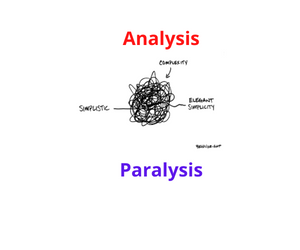I am lucky enough to live in Switzerland, a country well known for its rules and being neat & tidy. We’ll leave commentary on the subject of hanging out the washing and mowing the lawn on a Sunday for a different forum. Waste. Where I live, we pay for the rubbish collection by the bag. The more you bags you have, the more you pay. This really works. This is the famed “Verursachergerechtes Pricing”, passing the costs to those who cause them.
Allocations in banks often work in very strange ways. I have commented elsewhere (Click Here) on some over simple volume based allocations. In the worst case, unthoughtful cost allocations may result in one business spending money just to avoid the costs imposed by another area. This has happened over recent years in some FX Prime Brokerage areas; client volume exploded. Internally costs were allocated on trade count and the FX PB folks were royally stuffed with costs. In large part those trades were a high volume, low touch business. So, fed up with the costs allocations, some of FX teams created a new utility, rather like netting, but called aggregation. This is because you cannot net a series of FX trades as simply as you can series of trades in IBM shares. It cost money to create that new service. Now unless as a result, some costs were avoided, for example new hardware, all those involved were spending more money. There are other arguments in this case, and it is not 100% waste, but it highlights what you need to think about.
Very recently, a good friend of mine at one of the Swiss banks told me about his troubles arguing about the costs for reconciliation. His bank is a big user of one of the two industry standard recs packages: Sungard’s IntelliMatch and Smartstream’s TLM. Doesn’t matter which his shop uses. Like all big places they have a global license, so all the entities can use it. It’s bought and paid for, at least at the corporate level. So now comes the great internal cost allocation. My friend looks after the firm’s FX settlements, a very high volume business. But his FX is one of the many products in the many entities using the package. No hardware investment is on the horizon, which might well be a cost you pass to the heavy users. Still, the bean counters in charge of allocations are totally ignoring entities and businesses and simply passing on costs by trade count. They should take head from the following lesson, which is one I shared with my friend in an effort to help him fight off the undue allocation burden.
This is a parable in heavy circulation on the Internet called: “Barstool Economics” Suppose that every day, ten men go out for a beer and the bill for all ten comes to $100. If they paid their bill the way the folks in the US pay taxes, it would go something like this:
The first four men (the poorest) would pay nothing
The fifth would pay $1.
The sixth would pay $3.
The seventh would pay $7.
The eighth would pay $12.
The ninth would pay $18.
The tenth man (the richest) would pay $59.
So, that’s what they decided to do. The ten men drank in the bar every day and seemed quite happy with the arrangement, until one day, the owner threw them a curve. “Since you are all such good customers,’ he said, ‘I’m going to reduce the cost of your daily beer by $20.” Drinks for the ten now cost just $80. The group still wanted to pay their bill the way we pay our taxes so the first four men were unaffected. They would still drink for free. But what about the other six men – the paying customers? How could they divide the $20 windfall so that everyone would get his ‘fair share?’
They realized that $20 divided by six is $3.33. But if they subtracted that from everybody’s share, then the fifth man and the sixth man would each end up being paid to drink his beer. So, the bar owner suggested that it would be fair to reduce each man’s bill by roughly the same amount, and he proceeded to work out the amounts each should pay. And so: The fifth man, like the first four, now paid nothing (100% savings). The sixth now paid $2 instead of $3 (33%savings) The seventh now pay $5 instead of $7 (28%savings) The eighth now paid $9 instead of $12 (25% savings). The ninth now paid $14 instead of $18 (22% savings). The tenth now paid $49 instead of $59 (16% savings).
Each of the six was better off than before, and the first four continued to drink for free. Once outside the restaurant, the men began to compare their savings. “I only got a dollar out of the $20,” declared the sixth man, “but he,” pointing to the tenth man “got $10!” “Yeah, that’s right,” exclaimed the fifth man. “I only saved a dollar, too. It’s unfair that he got ten times more than I!” “That’s true!” shouted the seventh man. “Why should he get $10 back when I got only two? The wealthy get all the breaks!” “Wait a minute,” yelled the first four men in unison. “We didn’t get anything at all. The system exploits the poor!” The nine men surrounded the tenth and beat him up.
The next night the tenth man didn’t show up for drinks, so the nine sat down and had beers without him. When it came time to pay the bill, they discovered something important. They didn’t have enough money between all of them for even half of the bill.
Lessons Learned: And that is how many tax systems work. The people who pay the highest taxes get the most benefit from a tax reduction. But, Tax them too much, attack them for being wealthy, and they just may not show up anymore. In fact, they might start drinking overseas where the atmosphere is somewhat friendlier. Taken inside banks, the same applies to cost allocations as to the beer tab.
Share on:



